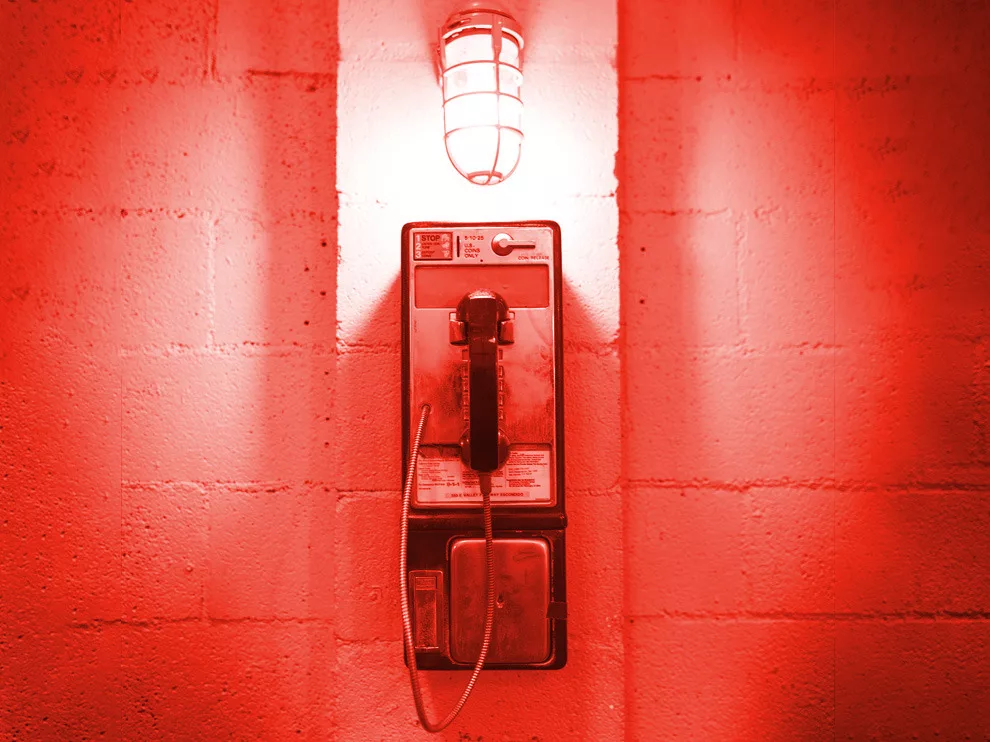Voices
The Prison Telecom Free-For-All is Over
New rules from the Federal Communications Commission are putting the brakes on the prison telecom industry’s exploitative practices.

The billion-dollar prison telecom industry is in for a bumpy ride. In July, the Federal Communications Commission (FCC) voted unanimously to rein in the egregious rates charged for prison communication services, a move that spells trouble for the industry’s major players.
Correctional telecom corporations contract with prisons and jails to provide communications services to incarcerated people. In all but a few cases, incarcerated people and their loved ones are on the hook to pay costly per-minute rates for service. The industry is dominated by private equity-backed Aventiv, ViaPath, and ICSolutions, owned by Platinum Equity, American Securities, and H.I.G respectively, who together control 90 percent of the market.
These corporations are notoriously exploitative: A simple 15-minute phone call can cost upwards of $8, and a 25-minute video call $15, not including the litany of head-scratching fees that are often tacked on. Working for pennies an hour, if anything at all, incarcerated people often cannot afford even limited contact with their loved ones, leaving their families struggling to pay for these services. In fact, one in three families with someone behind bars goes into debt trying to stay connected.
For years advocates have worked to end the industry’s predatory practices. They’ve successfully toxified the corporations and their private equity owners, passed state laws that shift the cost burden from families to governments, and increased the regulatory authority and obligation of federal agencies.
The FCC’s new rules more than halve the rates telecom corporations are allowed to charge incarcerated people and their loved ones for phone calls. Based on publicly available data, this will force them to lower rates in at least 24 state prison systems and 90 percent of county jails, but likely all facilities. And importantly, the FCC also set interim rate caps for video calls for the first time.
The FCC’s justification for slashing rate caps is based on a simple but fundamental legal principle commonly used by the agency: Ratepayers should only be charged for services that are “used and useful” to them.
For years, the industry has used call rates to cover the cost of the ever-ballooning suite of security and surveillance services they casually offer prisons and jails to win contracts. However, the FCC has now determined that the vast majority of such services, while potentially useful to law enforcement, are not necessary for the provision of communications services or useful to those paying for them. Thus, if correctional telecom corporations want to be compensated for these expensive services, such as eternal data storage and voice biometrics, they’ll need to look to prisons and jails to pay for them rather than forcing a literally captive market to do so.
The industry fears that prisons and jails may become more discerning about the security and surveillance services they want if they must actually pay for them. Perhaps they should, especially as some cities and states are starting to introduce legislation banning such services due to their invasive nature. Of course, the corporations in the space could shut down their security and surveillance product lines if there was no buyer for them. But whatever the solution, that’s a business challenge for the industry to solve, not the FCC, which is only mandated to regulate communication services.
In another foundational shift, the FCC has also banned the industry from paying prisons and jails commissions on call revenue, which perversely incentivized awarding contracts to bidders with the highest rates. Eliminating commissions undercuts this “race to the top” pricing scheme and deprives the industry of its biggest allies in padding profits: prisons and jails.
Taken together, these changes will massively reduce the industry’s revenue—by at least $450 million annually, according to initial estimates from Worth Rises, an advocacy organization that has been active in the FCC rulemaking process.
Yet, the FCC has left ample room for correctional telecom corporations to profitably provide communications services to incarcerated people. Its most restrictive rate cap is $0.06 per minute, which still grossly exceeds the price of phone service outside of prisons. The trouble is that the market players cannot afford to merely be profitable. They must be unjustly and unsustainably profitable to service their debt and generate the returns private equity investors demand.
Aventiv recently made headlines for effectively defaulting on its $1.3 billion debt after a year of failed refinancing efforts, resulting in a distressed debt exchange with lenders demanding that Platinum Equity sell the business within the year. ViaPath was reportedly closing in on a $1.5 billion refinancing deal with abysmal interest rates until news of the regulations temporarily scuttled the deal, which later shockingly closed.
When advocates say that exploitation is bad for business, we don’t just mean that it’s wrong to separate children and parents or prey on incarcerated people and their families, who are disproportionately Black, brown, and low-income. It’s also a phenomenal financial risk for the corporation and its investors the moment someone with conscience and power notices.
As it has before, the industry will contest the new rules in court—it has already started. But they have a tough hill to climb. The FCC is acting on explicit authority granted to it by Congress, insulating the rules from accusations of regulatory overreach, even in the wake of the Supreme Court’s decision to abandon Chevron deference. The agency has also developed an exceptionally robust record and devoted tremendous resources to explaining the reasoning behind each of its decisions. The case will likely be heard in the First Circuit, which is less favorable to industry than the Fifth Circuit, which it had hoped would hear the case.
As Tom Gores, CEO of Platinum Equity, once admitted, “Ultimately, I think this industry really should be led probably not by private folks.” Perhaps this is the moment for investors to cut their losses and exit.
